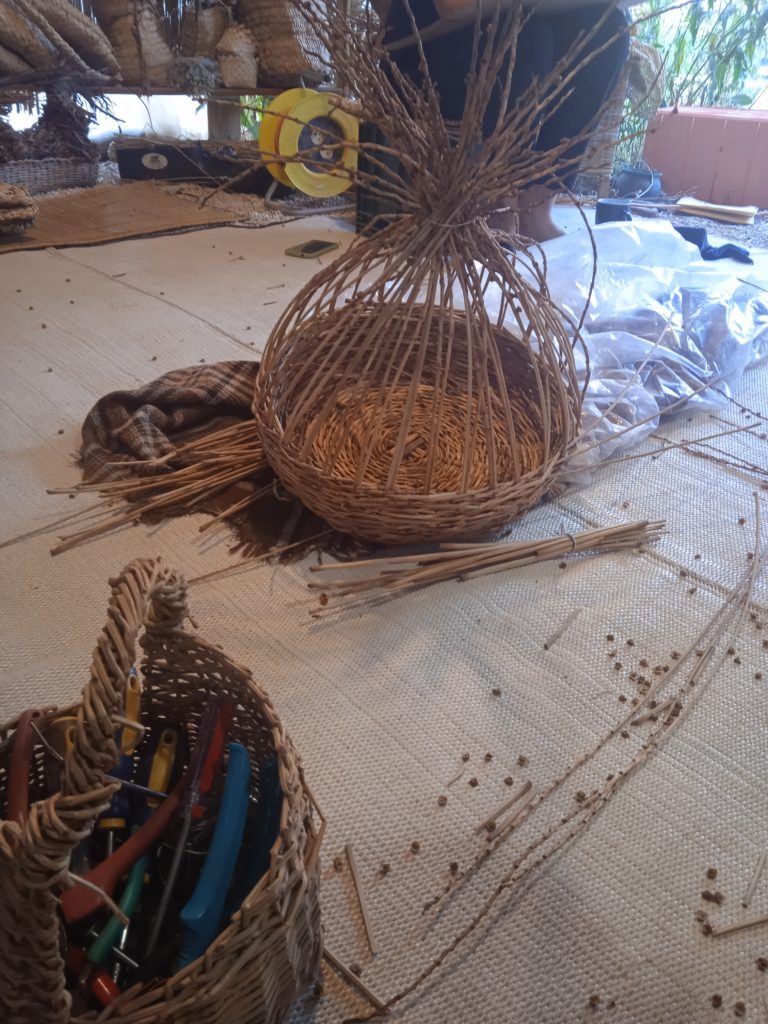The hosting of the Shabbos sheva brachos has ended and it went so beautifully. There was a lot of uncertainty for an extended period about where we would have the meals. I made a point to trust it would all work out rather than get anxious, and thankfully it did – it wasn’t until Tuesday evening that we found the venue that we would be using for Friday/Saturday. It was exactly what I wanted. Since it was recently renovated and wasn’t suitable for our needs prior to the renovation, no one had thought of it as an option when I was asking around.
We hosted our mothers, all of our married children and our newest son-in-law’s parents, siblings and their families. Being two large families with a lot of young families, it was a lot of people to host for sleeping and meals, but we were so happy to have everyone. It was a beautiful Shabbos with two families who were able to genuinely enjoy getting to know one another.
I self-catered three meals for approximately 45 people at each meal (my oldest daughter prepared all the desserts). As much as I very much wanted to, I wasn’t able to find people to hire to do the setting up and serving, so our children stepped in for that. They were great. But it was a lot of work that I would have preferred we didn’t have to do.
I felt good about having all the sleeping arrangements taken care of, having plenty of food well organized, and being calm and present for all the different relationships in the midst of such a busy time of doing. There were changes and disappointments and things that didn’t go as planned, and I stayed relaxed and rolled with the punches. I was extending myself for a lot of people and glad to be able to do it, and didn’t feel pressured or stressed.
It was on Saturday night that I got some feedback that was unfair and judgmental. It was certainly unwelcome and inappropriate at that moment in time, after an extended period of so much giving.
When I finally was able to get to bed, I was deeply exhausted. After a few hours of sleep, I woke up to do some journaling, which I haven’t done for some time. I wrote and wrote and wrote. Pages. About all the things I did, and how well I did them and how good I felt about it.
I wrote about the critical comments and how unkind and unjustified it felt. Usually I try to think about things from the other person’s perspective and understand them, but in my journal I allowed myself to have my own feelings of hurt and anger about it.
What came out for me of all this writing, was the very clear realization that it’s just not possible to make everyone happy all the time, no matter how hard I try and no matter how well everything goes. Everyone isn’t going to appreciate my efforts, appreciate me, and think I’m a good enough person. Everyone isn’t going to feel that I give them what they need.
The larger our family grows, the more the expectations of me grow. There are more and more people who come into the family, through marriage or birth, with their own ideas of who and how I should be. I’m no longer ‘just’ a wife, mother and daughter, but a mother-in-law and grandmother. Those who married in to our family grew up in a different family environment with different ideas of what my role in their lives should look like. Even with our biological children, there are different levels of satisfaction with how I parent. Everyone has expectations of how I should be, what I should do, what I should give (in terms of energy, time and physical resources). And I can’t adequately meet some of those expectations.
Obviously, making everyone happy or wanting to be appreciated by everyone for your efforts can’t be the goal, because it’s unobtainable.
I mentioned to a mother with several adult married children a few weeks ago that a married child/spouse was disgruntled with something I hadn’t done in the way they wanted, and she looked at me without saying anything for a long moment. I told her, “Don’t tell me you’ve never experienced this!” She responded, “That’s how it always is; I take it as the norm.”
There’s so much written about the challenges of growing children and busy households, but much less shared about the challenges and realities of this stage of life. After decades of parenting and homemaking, rather than slowing down and taking it easy, a mother is expected to up the bar and do more and more and more, for more and more people. She is expected to be calm, organized, giving, nurturing and patient, and magically know how to meet each person’s needs in the way they prefer.
I went directly from this demanding wedding period into Purim and organizing all of the necessary activities, and will soon begin Pesach preparations. We’ll be having my mom and three married children staying with us; my daughter will host another of our married children for sleeping. All five families will be with us for the seder and four families for the ensuing meals for as long as each chooses to stay.
I love having everyone together, seeing the grandchildren playing together and all the adults spending time together gives me much nachas. I have non-ending gratitude for all of the wonderful people who have joined our family and each adds so much.
Does that sound warm and fuzzy and oh, so beautiful? All the amazing family togetherness, with everyone getting along?
It’s very special and I never take it for granted.
And it’s a huge amount of work.
I’m now taking some quiet time for myself to regroup. I’m assessing how much I can give and how much I want to give, regardless of what others want of me. There are things I’ve willingly stretched myself to do, and after the minimal or nonexistent recognition of those efforts, am choosing to stop stretching rather than become resentful. These adjustments aren’t likely to be welcomed by those who are used to being on the receiving end but they need to be made.
It’s a good thing to be concerned about the comfort and happiness of others. But it’s not a good thing to do so much that you compromise yourself and your own happiness. There’s no one at fault if you’re overextended and unappreciated. You’re the one who needs to create boundaries that protect yourself, you’re the one who has to take care of yourself, and by doing that, you teach others how to treat you.
Avivah








